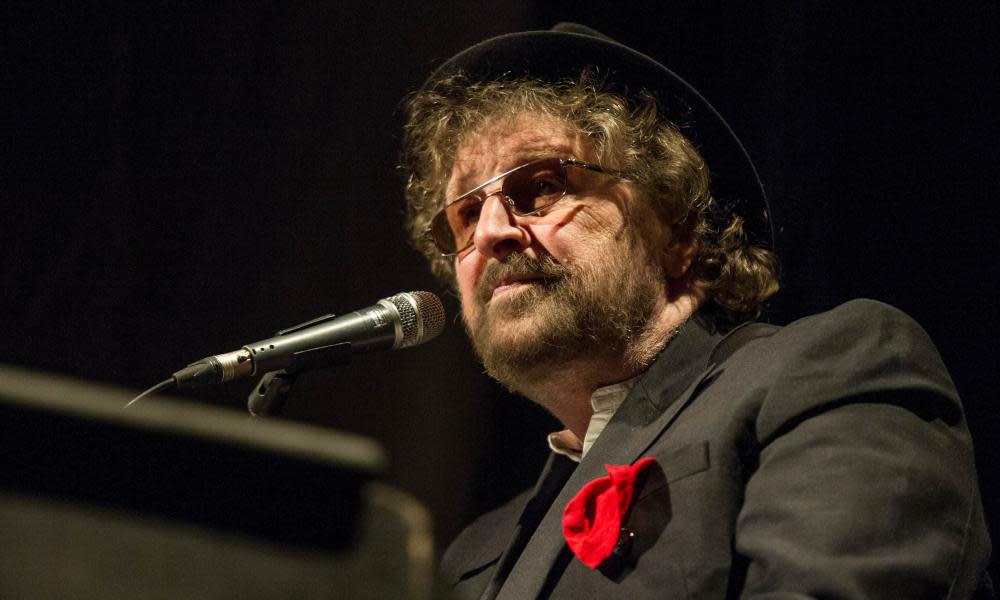Chas Hodges, an appreciation: one of the most significant English folk musicians

Chas Hodges – in company with Dave Peacock – was one of the most original British musicians to have come out of the rock’n’roll era. Chas and Dave did something that had never occurred to anyone else: combining rock, blues, country and music hall with the sound of a London that was already disappearing by the time they released their first album, One Fing ’n’ Anuvver, in 1975.
You might, justifiably, compare the best of their writing to Ronnie Lane, or to Ray Davies, the difference being that Chas and Dave sounded less like a Kinks song than the music one of Davies’ characters might have made.
The best of their songs were the memories of the yellowed wallpaper of the public bar – never the saloon bar – given voice: overheard arguments, declarations of love and shady deals, conducted over two pints of mild and a pack of fags.
Hodges, of course, had a long pedigree before Chas and Dave: he had recorded with Joe Meek, been in the Outlaws with Ritchie Blackmore (which later led to him playing bass for Deep Purple at one show). He played with Jerry Lee Lewis and Gene Vincent. Most famously, the hook he and Peacock recorded for Labi Siffre’s I Got The … became the chassis of Eminem’s first hit, My Name Is.
Hodges was initially encouraged to play music by his mother, a pub pianist, and then he was inspired by Lonnie Donegan. “That’s when I said to my mum, ‘I’d love to play the guitar,’” he told me in 2013. “She was well pleased, and she got an old guitar off me Uncle Alf over in Hackney. He done it up. I didn’t know anybody who could guitar-tutor in them days. They all played banjos, if you did play anything. But bit by bit, I remember learning off of Lonnie Donegan. We didn’t have a telly, but my mate over the road did, and if Lonnie Donegan was on I’d go over there – ‘Look at his hands? What’s that? I’ll try that out!’ I gradually got there.”
The piano came a few years later, when the Outlaws toured with Jerry Lee Lewis. “I always say Jerry Lee taught me the piano, which he did. But he didn’t know he was teaching me the piano – it was just watching him every night. ‘Oh yeah, I got that now. I see what he’s doing.’ Like in Whole Lotta Shakin’ Goin’ On, he uses his thumb, and that gave it the extra bit that I couldn’t hear on the record. I basically knew the chords, not the little idiosyncrasies. I came on in leaps and bounds on that tour.”
The idea for Chas and Dave – a group that would sound like the city they came from – germinated when Hodges toured America with Heads, Hands and Feet in the early 70s. “Right up till then I would sing in an American accent, but I suddenly felt a fraud singing in their accent,” Hodges told me. “Cut a long story short, when I come back from America I was ready to take up piano. I rung Dave up and we went to a pub and just talked about the idea. Dave was up for it, and that was the start of Chas and Dave.”
By rights, Chas and Dave should have been hailed as part of the pub rock boom, given theirs was music made for pubs. But they played the wrong sort of pubs: having been session musicians, they insisted on only playing for a proper wage, and turned away from the pub rock circuit towards music pubs in east London, where they developed a loyal following, won the support of the influential DJ Charlie Gillett, and eventually signed to EMI.
For a few years in the late 70s, Chas and Dave were inescapable: hit single after hit single, their own TV show, cup final records with Spurs. Plenty of the songs that made them famous were brilliant – anyone who can deny The Sideboard Song, or Rabbit, or Gertcha, has never felt the simple joy that comes from perfectly choreographed silliness – and Ain’t No Pleasing You was as perfectly constructed a standard as anything that might have been heard in the music halls they harked back to.
Chas and Dave spread themselves too thinly, though. The albums of often fantastic originals gave way to records of medleys: when going through their discography, avoid anything with “Knees Up”, “Jamboree” or “Street Party” in the title, even if Chas and Dave’s Street Party: 50 Classic Songs Which Helped Win the War was their biggest hit, reaching No 3 in the UK albums chart. The duo seemed to have called it a day in 2009 when Peacock’s wife died, but reunited and signed to Warner in 2013 for two final albums, That’s What Happens and A Little Bit of Us, that returned them to their roots. It was joy to hear Hodges’ voice and piano again, rolling his mouth around the vowels, singing about removal men and modern Del Boys.
There was never anyone quite like Chas Hodges. There never will be again. And whether or not you actually like Chas and Dave, to lose someone who made music so tied to its place is a shame. He was one of the most significant English folk musicians, because he sang about the working classes of the city – the voices the folk revivalists often ignored – and that’s how he should be remembered.

 Yahoo News
Yahoo News 
